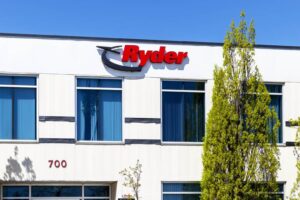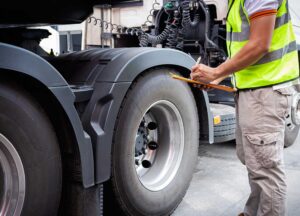Idling your truck’s engine is expensive and can burn a gallon of fuel per hour or more. At $2.85 per gallon, the national average diesel fuel price posted by the U.S. Energy Information Administration March 2, idling through a 10-hour rest break will cost about $28.50. Do that five nights a week, and after a year that’s $7,125 spent on fuel that didn’t move the truck a single inch.
Then there are added maintenance costs, along with the increasing possibility of fines. Thirty-one states now have anti-idling laws on the books.
Increasingly, truck and fleet owners are turning to Auxiliary Power Units (APUs) to lower fuel costs; however, choosing an APU can be an intimidating experience.
The first decision is whether your APU will be battery-powered or have its own engine. Battery-powered APUs burn zero fuel but are limited by the amount of electricity stored in batteries. They can provide sleeper air conditioning and electricity for accessories for eight to 15 hours, but extreme temperatures drastically reduce run times. Some are paired with fuel-burning bunk heaters to increase efficiency. Battery-powered APUs operate very quietly — a plus for light sleepers. Electric APUs can be an attractive option for drivers who use them primarily during 10-hour breaks. Using accessories such as microwave ovens, refrigerators or coffee makers will also deplete the batteries quickly and idling the truck may be necessary to recharge batteries long before the end of a 10-hour rest period.
Diesel-powered APUs can provide full power for as long as fuel remains in the truck tanks. Most provide ample power and can keep the truck engine warm for quick startup later. Drawbacks include noise levels, cost of fuel, and maintenance time and expense. In some jurisdictions, where idling is illegal, running diesel-powered APUs is also prohibited. If the business plan calls for trips to the Northeast or California, expect anti-idling laws that apply to the APU.
It’s also important to accurately predict the need for power when parked. In states with climates that are warmer or colder than average, it will require more power to heat or cool the sleeper area when the truck isn’t running. Ten-hour breaks in the heat of the day will require more power for air conditioning, and breaks taken when it’s dark may call for more heating. The length of a typical break matters too. A driver who routinely resumes work as soon as the 10-hour break is finished might prefer an electric-only model. Drivers whose business requires more time parked may be limited to diesel models.
Drivers who prepare most of their meals in the truck may need additional power for refrigerators and microwaves. TVs and other electronics need power but typically not as much as other appliances. The more power needed, the more likely it is that it will take a diesel unit to provide it.
Noise levels are a consideration. Although APU motors are much smaller than truck engines, they can be very noisy.
Every APU will require regular maintenance of some sort. Diesel units need to be serviced just as truck engines do, including oil and filter changes. Electric units don’t need the same level of service, but batteries need periodic replacement.
Initial cost is often the most important factor to buyers. A high-quality name-brand APU can run $10,000 or more, and dealers often offer financing options. However, the fuel savings start immediately, and those savings can more than make up the cost of a monthly payment. Look at the $7,125 annual idling cost noted earlier. A diesel APU will burn 25% to 50% of the fuel burned by the truck engine for the same amount of time, so buying fuel for the APU would save $5,344 in a year ($445 per month). The monthly payment for a five-year $10,000 loan at 8% interest is less than half that: $203. The same amount financed for three years calls for a $314 monthly payment, still below the monthly savings.
APUs can have a huge impact on the bottom line of a trucking business. How big an impact might come down to purchasing the right unit for the job.
Cliff Abbott is an experienced commercial vehicle driver and owner-operator who still holds a CDL in his home state of Alabama. In nearly 40 years in trucking, he’s been an instructor and trainer and has managed safety and recruiting operations for several carriers. Having never lost his love of the road, Cliff has written a book and hundreds of songs and has been writing for The Trucker for more than a decade.








